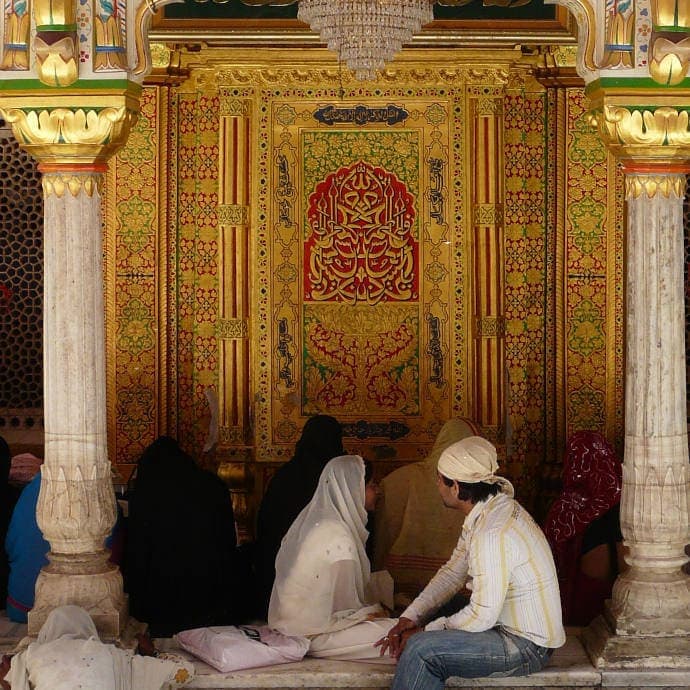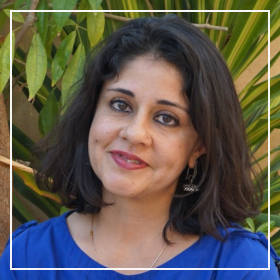As social scientists our work often directly grows out of our personal journeys—journeys that are physical, emotional, intellectual and political. However, this is rarely acknowledged. This lack of self-reflection likely springs from a tradition within the social sciences of exploring ‘the other’ rather than thinking critically about ourselves. Historically, social scientists have been trained to distance ourselves from our research subjects in order to maintain a guise of objectivity, which glosses over the tensions and discomforts within our own research. However, since the 1970s many post-structural, postcolonial and feminist critics have argued that this distance masques the role of power in the production of particular kinds of subjects.
More recently, there has been a growing push to decolonize the academy, which is coming mostly from younger academics of colour who argue that racism, classism and sexism still plague the social sciences at every level (see Smith 2012).
The experience of crossing multiple borders as a researcher has led me to continuously reflect on the power relationships that are often implicit but undiscussed or even forcibly silenced within academic research. This contribution is a modest attempt to critically think through the tensions and moments of discomfort in my own journeys as a researcher and to consider what these experiences might reveal about the problematics of academic production more generally. In exploring how my research shifts and is received as I move across various borders, I reflect on the nature of positionality, the politics of shifting locations, the binary between ‘the field’ and ‘home’, and the intellectual value of maintaining a sense of critical discomfort and self-reflexivity as a researcher. These reflections seem all the more urgent in the context of rising xenophobia and nationalism within South Asia and globally.
Growing up in the United States, the question of identity was a constant. Like all children of immigrants, I was regularly asked, ‘Where are you from?’. The answer was always a source of great confusion to me. Both of my parents were born in the area surrounding Lucknow, but my father’s family migrated to Pakistan at the time of Partition, and my mother’s family remained in India. After the completion of my undergraduate degree, I followed the clichéd path of spending a year in India trying to ‘find my roots’ by working at a human rights organization. I left India at the end of that year with a heavy heart and returned to the United States a few days before 9/11—an event that would profoundly shape the course of geopolitics for the coming decades, but which would also influence the research trajectories of many social scientists including myself.
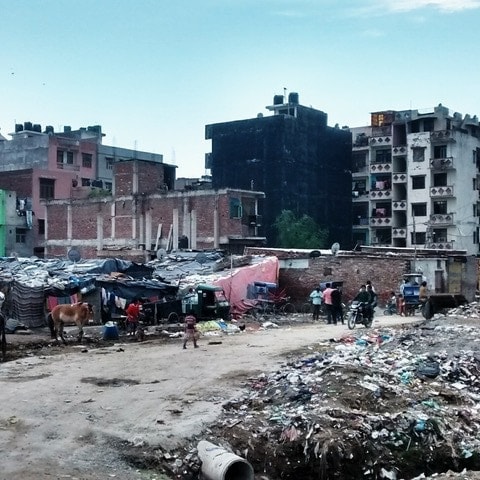
At the heart of every social scientist’s research is some kind of personal trouble. In ‘The Sociological Imagination,’ C. Wright Mills (1958) argues that sociology can help one overcome the traps in one’s private life. For me as well, the necessity to overcome the sense of being trapped by borders and boundaries, has been a key concern of my research. After joining the University of Manchester as a PhD student, I returned to India to pursue my dissertation research on the question of Muslim women and insecurity in Delhi. Having been raised in a Muslim household while living in the ‘Bible Belt’ of the United States, my project was driven by my personal struggle to understand the process of religious boundary formation. It was also driven by my quest to understand the cleavages within the Subcontinent that led, at least partially, to the Partition that had divided my own family.
My work was a conscious effort to dispute the politics of unitary identities being propagated by right-wing forces in India and internationally following the Global War on Terror by presenting a more complex and nuanced understanding of religion as part of a complex and unstable process of identity-formation. My project aimed to unpack the overdetermined category of ‘the oppressed Muslim woman’, which had been deployed both by feminist researchers and by various powerful actors including the British colonisers, the United States, and the proponents of Hindutva, in order to further their own agenda. Presenting this research both in India and to European and North American audiences against the backdrop of growing Islamophobia in India and in Europe and the United States felt like an important political intervention at the time.
After completing my PhD research and without the prospect of a job in India, I moved back to the UK where I joined an international research consortium as a Research Fellow. I noticed how my own positionality changed as a researcher coming from ‘the West’ when I visited both India and Pakistan. I was often met with suspicion and at times outright hostility by my South Asian colleagues, which is something I had not faced when I had been based in India. While this was challenging and at times seemed unfair, I later understood more where these sentiments may have been coming from. My position had shifted from that of a student to a researcher coming from the ‘Metropole’ to take knowledge out of the Subcontinent and share it with a formerly colonizing government.
However, my position within the North American and European academy was also circumscribed. Several scholars have pointed out the racial, class and gender-based hierarchies that operate within the Western academy (see Ahmed 2012; 2017). While there were some exceptions, for the most part the power to control and distribute funds, make decisions about the direction of the project, and extrapolate from the data to inform theory, took place in the United Kingdom, while the gathering of empirical data took place in the partner countries in Africa and South Asia. This became even clearer when I was involved in another UK-based research collaboration later while I was based in Pakistan. Again, the funding and direction for the project was coming from the UK while the empirical material was being provided by those located in the Global South. In both instances, the assumption was that theoretical expertise is located and generated in the Global North while empirical evidence comes from the Global South. There was often a subtle form of racism underlying these projects, which framed people like myself as ‘native informants’ and brought in white ‘experts’, who were generally much better paid than those based in the Global South, for guidance (see White 2006). When the research consortium wrapped up in 2010, I decided to move back to South Asia in order to be closer to ‘my field’ and my family, but this time, on the other side of the border in Pakistan.
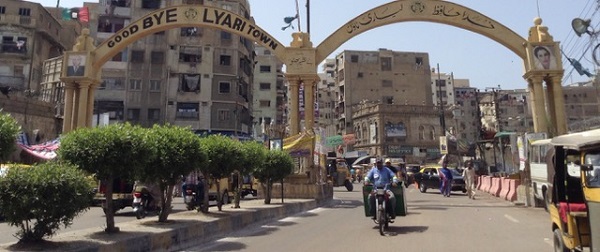
A year after moving to Pakistan, I encountered what would become my field site for the subsequent six years—the area of Lyari in Karachi. I first visited Lyari in August 2012. The people I encountered during that first visit talked about how Lyari had been maligned by the media, how people in Lyari were discriminated against in employment, and how the area was politically marginalised in the city. These issues resonated with what I had explored before in my work on Delhi, namely the relationship between urban violence, marginalisation and gender (Kirmani 2013). I have continued to work in Lyari since this time, unpacking layer by layer, the complexity of social life in this area. My work has focused on how people living in this stigmatised territory (see Wacquant 2007) experience not only different forms of violence but also how they engage in the politics of resistance and enjoyment in the context of their everyday lives.
Chua and Mathur (2018) question the anglophone tradition and ask, who is the ‘we’ of anthropology, in other words, what are the assumptions that underlie anthropology as a discipline in terms of who has the authority to produce knowledge and for whose consumption is it being produced?
While these questions concerned me with regards to my research in Delhi, they have become of greater concern to me since I began my work in Lyari and pushed me to think more deeply about who our intended audience(s) are or should be as engaged social scientists. There are a few reasons for this. Despite the fact that I communicated with my interlocutors in Delhi in Urdu, a large number of them were familiar with English and hence, at least in theory could have access to my research publications even if academic language is itself often exclusionary. However, in Lyari the vast majority of the people with whom I interact have very basic or no knowledge of English at all and hence are not able to engage with any of my publications. I also often present my findings in places where the majority of my interlocutors could not imagine visiting. Even when I do present my research in Pakistan, it is mostly to elite, English-speaking audiences for whom Lyari is almost as foreign as it is to someone from another country. While I am experimenting with different mediums in order to communicate my research and include the voices of those living in the area more directly, for example working with documentary film and photography, the distance between those being researched and the audience for whom I am writing often seems too great to overcome.
Furthermore, the problematic division between ‘the field’ and ‘home’ (see Gilbert 1994; Gupta and Ferguson 1997), was not as apparent to me earlier in my career. My research in Delhi followed the classic model of academics based in the global North who work on the Global South in that I gathered my data and then left ‘the field’ to reflect on my work and write within the European academy. Since moving to Pakistan and working in a field site that is also located in the same city where my family is based, the notion that one can just leave ‘the field’ in order to write and reflect has become largely impossible. In many ways, this experience has helped me realise the problematic nature of the field/home binary upon which much anthropological research is premised and which obscures the power relationships between the researcher and the researched and naturalises an essential difference between the self and the ‘Other’ (Gupta and Ferguson 1997: 15). The fact that my family home is in an elite area that is just a ten-kilometre drive from that of my interlocutors makes the imbalances in our power and privilege impossible to ignore.
Unlike the white academic who imagines they can immerse themselves in their field when conducting research but has the luxury of removing themselves when they deem fit, I cannot just leave and go back to a separate life.
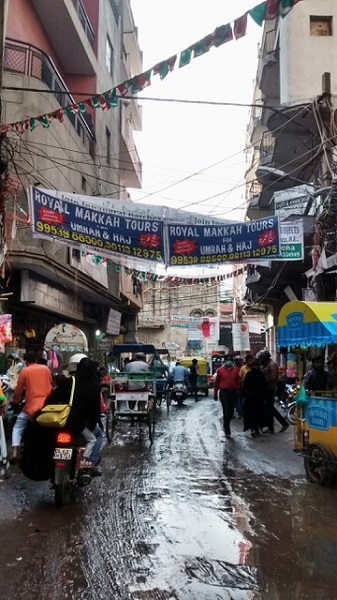
While cultural identity has been emphasised as the key factor that distinguishes an ‘insider’ from an ‘outsider’ academic (Narayan 1993), the experience of working in lower to middle income areas in Delhi and Karachi has also made it very apparent that ‘race’ or ethnicity is only one amongst a host of factors that determine one’s relationship with ‘the field’. In Karachi, class divisions often seem overshadow all other forms of distinction but are also intertwined with them. The reactions of shock and awe that I face when I mention that I work in Lyari or the patronising attitude displayed by those living in the ‘posh’ parts of towns towards residents of Lyari is a testament to the deep class-based divisions within the city, which are often intertwined with and reproduced through ideas about ethnicity. My experience working in a stigmatised area for the past six years has made it abundantly clear that the boundaries of ‘inside’ and ‘outside’ work in complex ways and cannot be simplistically defined along unitary axes of nationality or race.
Mohanty (2003) argues for a feminist practice that crosses and challenges borders as a political project. This does not mean denying borders. Rather, it means acknowledging ‘the fault lines, conflicts, fears and containment that borders represent’ (ibid.: 2). Being a cross-border academic—both in the sense of crossing spatial and social borders—I have had the privilege of experiencing a constant sense of discomfort. I say privilege because these uncomfortable moments of border crossing have allowed me to understand certain power relationships more clearly than I would have had I remained in the same place throughout my life. These experiences have pushed me to question my relationship with certain dominant academic practices, which are dependent on maintaining a boundary between ‘us’ and ‘them’, ‘the field’ and ‘home’, in order to conduct research. This boundary is premised on and reproduces particular arrangements of power based on class, caste, race, ethnicity and gender.
Despite the decades of reflection undertaken within the social sciences, much work remains to be done in terms of questioning these dominant modes of knowledge production.
Reflecting on my own personal journey has allowed me to bring into relief the role of social and political context on how research is produced and communicated both between the ‘East’ and the ‘West’ but also between the powerful, who tend to occupy academia, and the less powerful, who are most often the subjects of our research. Such personal reflections are not mere navel-gazing. Rather, connecting the personal, political and academic realms in our lives and reflecting on our own discomforts is necessary in order to expose the uneven dynamics of academic knowledge production; in the context of a rise in right-wing movements within South Asia and globally, this is both an intellectual and a political project in that such efforts help move us closer towards first understanding and eventually dismantling the hierarchies and borders that aim to order and divide the social sciences and society more generally.
References
Ahmed, S. 2012. On Being Included: Racism and Diversity in Institutional Life. Durham, NC: Duke University Press.
Ahmed, S. 2017. Living a Feminist Life. Durham, NC: Duke University Press.
Chua, L. and Mathur, N. 2018 ‘Introduction’ in Ed. L. Chua and N. Mathur. Who are We? Reimagining Alterity and Affinity in Anthropology. New York: Berghahn Books, pp. 1-34.
Gilbert, M. 1994. ‘The Politics of Location: Doing Feminist Research at ‘Home.’ The Professional Geographer. Vol. 46(1), pp. 90-96.
Gupta, A. and J. Ferguson (1997) Anthropological Locations: Boundaries and Grounds of Field Science, Berkeley, CA: University of California Press.
Kirmani, N. 2013. Questioning ‘the Muslim Woman’: Identity and Insecurity in an Urban Indian Locality. New Delhi: Routledge.
Mohanty, C.T. 2003. Feminism without Borders: Decolonizing Theory, Practice and Methodology. Durham, N.C.: Duke University Press.
Mills, C.W. .1959. The Sociological Imagination. Oxford: Oxford University Press.
Narayan, K. 1993. ‘How Native is a ‘Native’ Anthropologist?’ American Anthropologist. Vol. 95(3), pp. 671-686.
Smith, L. T. 2012. Decolonizing Methodologies: Research and Indigenous Peoples. London: Zed Books.
Wacquant, Loic. 2007. ‘Territorial Stigmatization in the Age of Advanced Marginality.’ Thesis Eleven. No. 91, pp. 66-77.
This essay is an early version of a book chapter coming out next year in a volume entitled Negotiating Personal Biographies with larger Social Forces: Understanding Social Scientists of India edited by Achla Tandon, Gopi Tripathy and Rashi Bhargava, Routledge India.
This essay was republished on Aug. 19, 2020.
Featured image (cropped) by Varun Shiv Kapur (flickr, CC BY 2.0)

